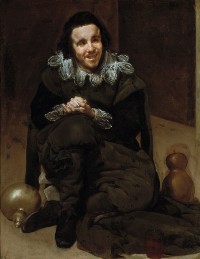Accidental Comedians? The Fool and the Logics of Early Modern Comedy
About this project
Project information

The project investigates the changing form and social role of comedy in the Renaissance period through the study of a number of fools and clowns in England, primarily in the 16th century. At this time, fools were often divided into artificials and naturals, namely those who became fools thanks to a comical talent and those who became fools due to an intellectual or physical disability. The focal point of the research is the latter category and the question of how early modern humour related to disability humour, or in other words: to what extent were the comedians of the early modern period accidental comedians? The project lies at the intersection of disability studies, cultural history, literary studies and microhistory.

